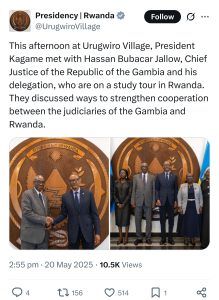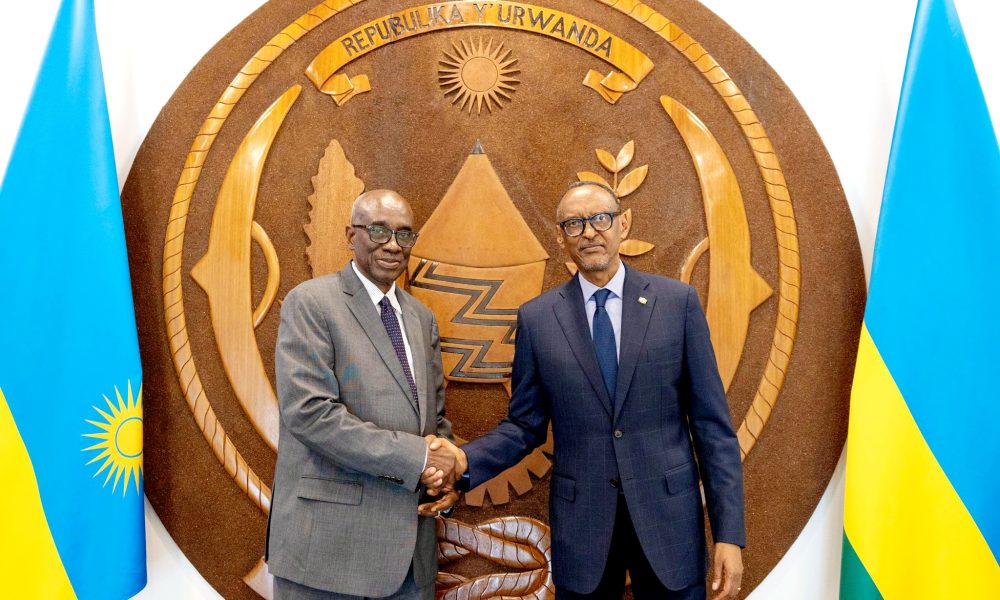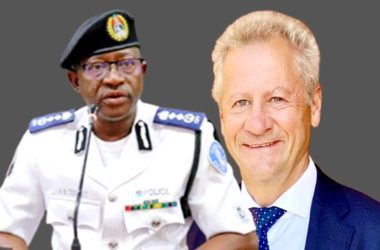President Paul Kagame of Rwanda on Tuesday, met with Gambia’s Chief Justice Hassan B. Jallow and his delegation during their study tour in Kigali. The visit is part of a broader initiative to deepen cooperation between the judicial systems of the two countries.
According to a statement from Urugwiro Village, the two leaders discussed practical ways to boost collaboration, with a focus on improving access to justice and enhancing the efficiency of legal systems in both countries.
Earlier on Monday, Chief Justice Jallow held talks with his Rwandan counterpart, Chief Justice Domitilla Mukantaganzwa. Their meeting focused on key reforms and shared challenges, such as the modernisation of court systems, electronic case management, and the creation of specialized courts to handle areas like commercial and family law.
“We are currently implementing a five-year strategic plan for the development of our judiciary,” Jallow said, noting that it includes steps toward integrating technology and improving coordination among law enforcement and judicial actors. He highlighted Rwanda’s progress in these areas as a model worth learning from.
Jallow, a respected jurist who previously served as the Chief Prosecutor of the International Criminal Tribunal for Rwanda (ICTR), praised Rwanda for its judicial reforms and commitment to accountability. Under his leadership at the ICTR, the tribunal secured most of its landmark convictions related to the 1994 Genocide against the Tutsi.
The tribunal, headquartered in Arusha, Tanzania, officially closed in 2015 and has since been replaced by the International Residual Mechanism for Criminal Tribunals.
Jallow’s visit reflects growing interest among African countries in sharing experiences and learning from each other’s judicial reforms, particularly in building systems that are responsive, transparent, and efficient.

The Gambian delegation’s tour is expected to include meetings with various institutions involved in justice delivery, giving them a closer look at how Rwanda has approached institutional rebuilding after conflict.





